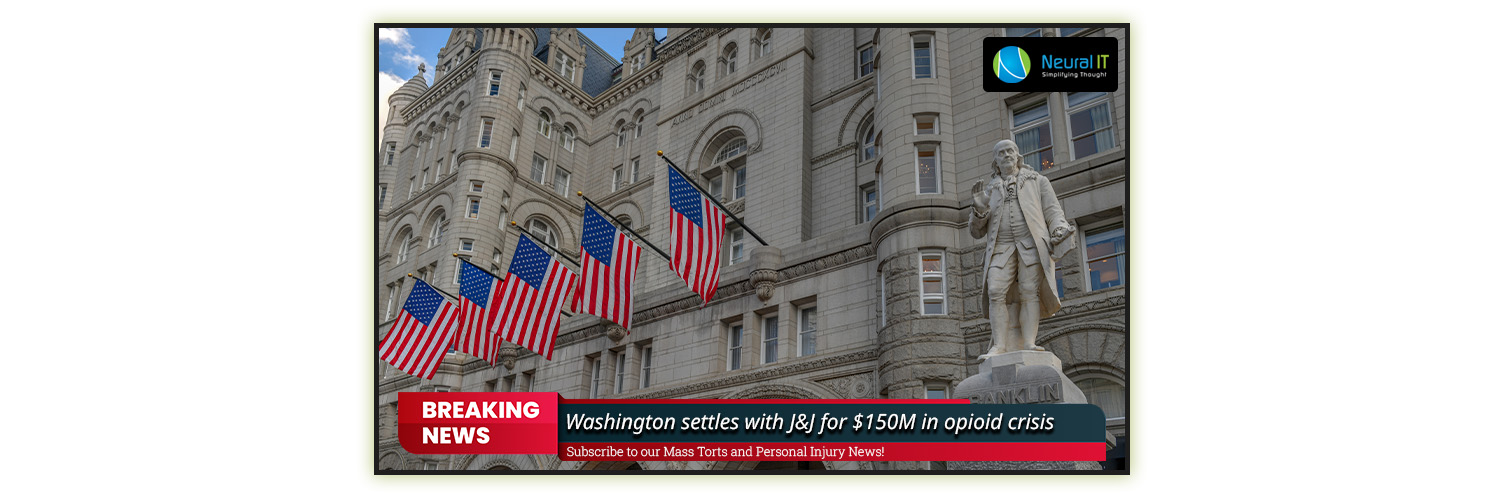
The Washington state attorney general has declared a settlement of $149.5 million with pharmaceutical giant Johnson & Johnson, concluding a legal battle initiated over four years ago regarding the company's involvement in the opioid addiction crisis.
This announcement coincided with a troubling trend in opioid overdose deaths, which more than doubled from 2019 to 2022, reaching 2,048 deaths in the latter year, as per the latest data from the Washington State Department of Health.
The attorney general expressed that the repercussions of this harm are now a challenge for policymakers to grapple with, or for families and individuals who deal with the real tragedy of addiction in a profound and different way.'
The settlement agreement is contingent on approval from a judge. If sanctioned, the deal would allocate over $20 million more to address the opioid crisis compared to the state's participation in a national settlement with Johnson & Johnson in 2021, according to the attorney general’s office.
Since the 2000s, various entities including drugmakers, wholesalers, pharmacy chains, and consultants have collectively agreed to pay more than $50 billion to state and local governments to settle claims implicating their role in fueling the opioid crisis. These settlements are predominantly intended to fund initiatives combating the nation’s addiction and overdose crisis.
From 1999 through 2021, drug overdoses caused over 1 million deaths in the U.S., with opioids being the major contributors. The crisis initially revolved around the acceptance of prescription painkillers in the 1990s and later shifted to heroin. Over the past decade, synthetic opioids like fentanyl, present in the supply of many street drugs, emerged as the primary culprits behind the soaring death toll.
In 2020, Washington state’s Democratic attorney general filed a lawsuit against Johnson & Johnson, contending that the company played a role in the pharmaceutical industry's expansion of prescription opioids. The lawsuit alleged that the company significantly impacted Washington’s opioid crisis by misleading doctors and the public about the efficacy of opioids for chronic pain and the risks of addiction.
Highlighting Johnson & Johnson's involvement, the attorney general's office pointed out that in 2015, the company was the largest supplier in the country of the active pharmaceutical ingredients used in opioid drugs.
Johnson & Johnson responded with a written statement asserting that its fentanyl patch, Duragesic, and its opioid Nucynta collectively accounted for less than 1% of opioid prescriptions in both the state and the U.S. The company clarified that it has not sold prescription opioid medications in the country for several years, and it maintained that its actions concerning the marketing and promotion of these prescription opioid medications were appropriate and responsible.
If the settlement is approved, the funds will be distributed by the end of the fiscal year. This timeline enables the Legislature to allocate the money during the ongoing legislative session. Half of the settlement amount will be directed to a state account, while the other half will go to an account designated for local governments, according to the attorney general’s office.
This settlement comes about two years after the nation’s three largest opioid distributors agreed to pay Washington state $518 million, with the majority of the funds aimed at addressing the addiction epidemic.




